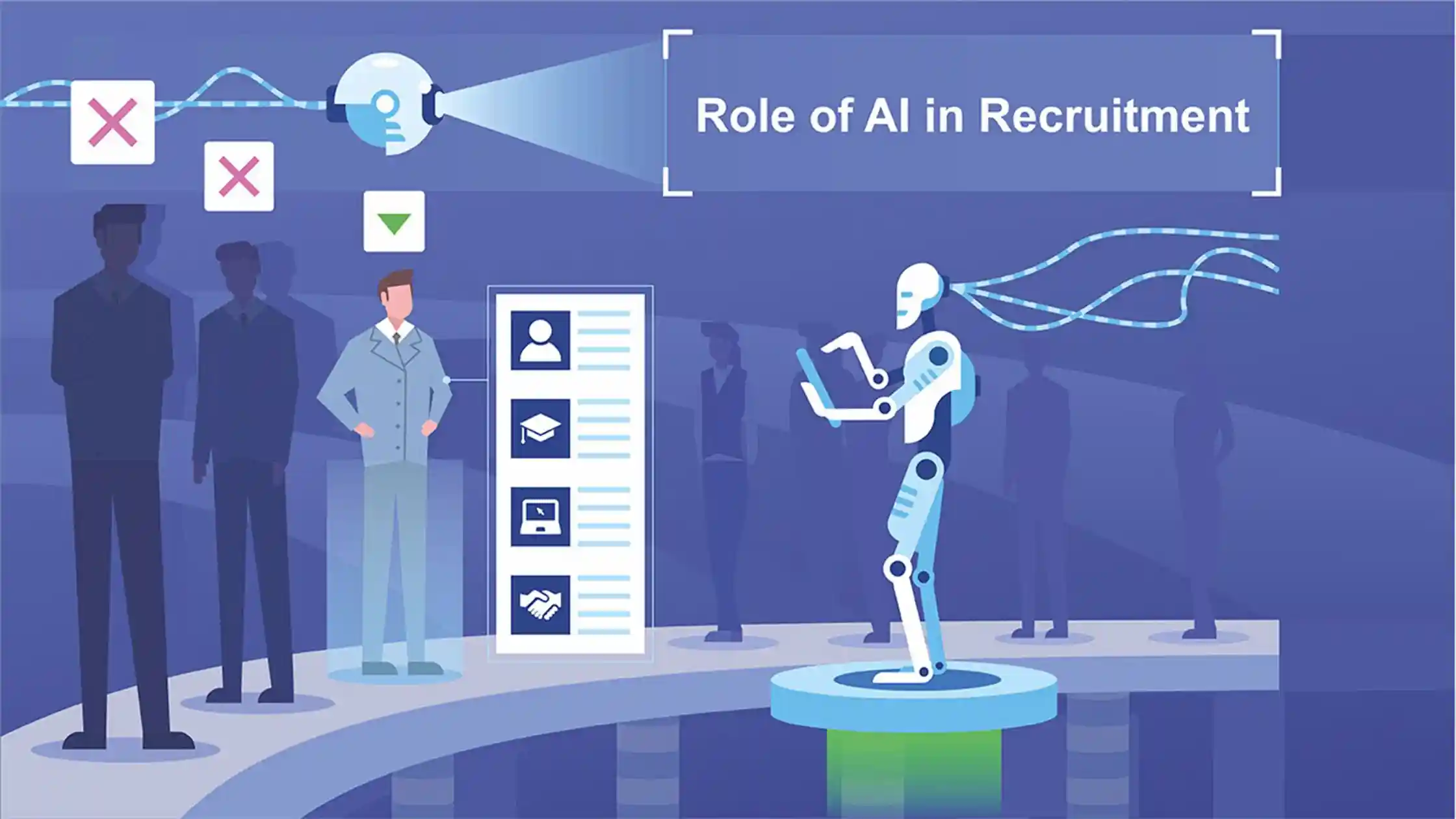Recruitment has always been a challenging and time-consuming process. From screening thousands of resumes to scheduling interviews and evaluating candidates, HR professionals spend countless hours trying to find the right talent.
But in 2025, things look very different—thanks to Artificial Intelligence (AI). AI is revolutionizing the hiring process, making recruitment faster, smarter, and more efficient. Whether you’re a job seeker, an HR professional, or a business owner, understanding how AI is transforming hiring is crucial.
So, how exactly is AI changing recruitment and HR? Let’s dive in!
HR teams receive hundreds (sometimes thousands) of job applications for a single position. Traditionally, recruiters had to manually sift through resumes, looking for relevant skills, experience, and qualifications.
Now, AI-powered Applicant Tracking Systems (ATS) do this in seconds.
🔹 AI scans resumes for keywords related to the job description.
🔹 It ranks applicants based on skills, experience, and qualifications.
🔹 Unqualified candidates are automatically filtered out.
💡 Example: Companies like HireVue, Workday, and LinkedIn Recruiter use AI to screen resumes efficiently, reducing the hiring time from weeks to just a few days.
📌 Impact on Job Seekers: Make sure your resume is AI-friendly by including job-relevant keywords and using a clear, structured format.
Instead of waiting for candidates to apply, AI helps proactively find and attract top talent.
✔️ Analyzing Social Media & Online Profiles – AI scans LinkedIn, GitHub, and job boards to find potential candidates.
✔️ Predicting Job Fit – AI predicts which candidates are most likely to succeed based on past hiring data.
✔️ Automated Outreach – AI-powered chatbots reach out to candidates with personalized messages.
💡 Example: Platforms like Entelo and Pymetrics use AI to search for talent beyond traditional job boards, helping recruiters discover hidden gems.
📌 Impact on Job Seekers: Keep your LinkedIn profile updated, and showcase your skills online (e.g., through GitHub, personal websites, or portfolios).
AI is not just screening resumes—it’s conducting interviews too!
✔️ Automated Video Interviews – AI analyzes candidates’ facial expressions, tone, and word choice to assess suitability.
✔️ AI Chatbots for Initial Screening – Chatbots conduct the first round of interviews, asking job-related questions and evaluating responses.
✔️ Predictive Analytics for Hiring Decisions – AI predicts which candidate is the best cultural and skill fit.
💡 Example: HireVue and MyInterview use AI to analyze speech patterns, confidence, and enthusiasm, helping recruiters shortlist candidates more effectively.
📌 Impact on Job Seekers: Practice speaking clearly and confidently. AI evaluates not just what you say, but how you say it!
Once a candidate is hired, AI streamlines the onboarding process.
✔️ Automated Paperwork & Documentation – AI fills out forms, verifies IDs, and organizes documents.
✔️ AI Chatbots for FAQs – New employees get instant answers to their onboarding questions.
✔️ Personalized Training & Learning Paths – AI suggests customized training modules based on the employee’s role.
💡 Example: IBM Watson helps companies create personalized onboarding experiences, reducing the confusion and stress new hires often feel.
📌 Impact on Employees: Expect a more efficient and digital-friendly onboarding process, with AI guiding you every step of the way.
One of the biggest challenges in hiring is unconscious bias—recruiters may unintentionally favor candidates based on gender, race, or background. AI is helping to reduce this bias and promote fair hiring.
✔️ Blind Resume Screening – AI hides candidate names, photos, and personal details to prevent bias.
✔️ Fair Candidate Ranking – AI ranks candidates purely based on skills and experience.
✔️ AI-Powered Job Descriptions – AI rewrites job descriptions to remove gendered or biased language.
💡 Example: Textio helps companies write bias-free job descriptions, while Pymetrics ensures AI-powered hiring decisions are fair and transparent.
📌 Impact on Job Seekers: AI-driven hiring makes recruitment more merit-based, giving everyone a fair chance at job opportunities.
Companies don’t just want to hire—they want to retain top talent. AI helps predict which employees will succeed and who might leave the company.
✔️ Analyzing Employee Engagement Data – AI tracks emails, work habits, and team collaboration to measure satisfaction.
✔️ Identifying At-Risk Employees – AI flags employees who might be unhappy or likely to quit.
✔️ Providing Career Growth Suggestions – AI suggests training programs and promotions to retain top talent.
💡 Example: Workday AI predicts which employees are likely to seek new opportunities and suggests ways to increase engagement and retention.
📌 Impact on Employees: Companies are investing more in employee well-being, ensuring better career growth opportunities.
AI is not replacing HR professionals—it’s making them more efficient. Here’s what we can expect in the future:
🔮 Hyper-Personalized Recruitment – AI will match candidates to jobs based on personality, values, and soft skills.
🔮 AI in Freelance & Gig Hiring – AI will make hiring freelancers and remote workers more seamless.
🔮 More Ethical & Transparent AI – Companies will focus on explainable AI to avoid discrimination.
AI is transforming recruitment—but it’s not something to fear. Instead, job seekers should embrace AI by adapting their approach:
✅ Optimize Your Resume for AI – Use job-relevant keywords and clear formatting.
✅ Stay Active Online – Keep your LinkedIn and portfolio up to date.
✅ Practice AI-Assisted Interviews – Be mindful of facial expressions, voice tone, and clarity.
✅ Develop AI-Resistant Skills – Critical thinking, creativity, and leadership will always be valuable.
🚀 What are your thoughts on AI in hiring? Do you think it’s making recruitment better or more challenging? Let’s discuss in the comments below! 😊
